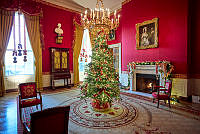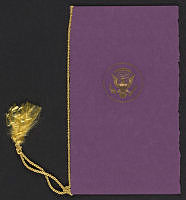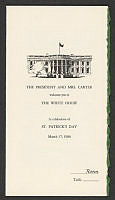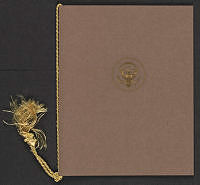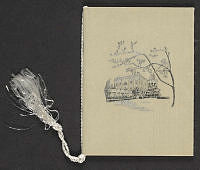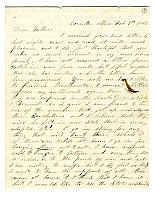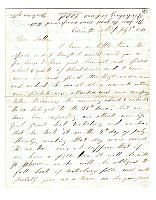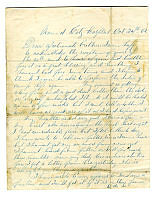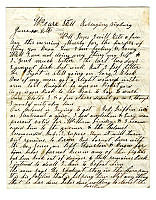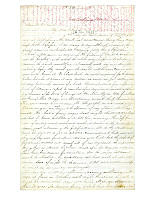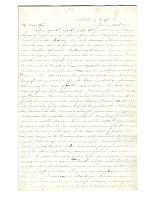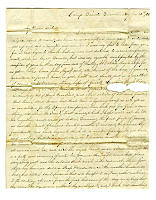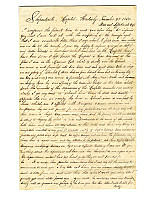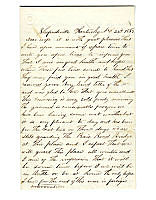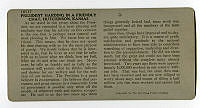The Imperial Season
Those characters you never forget ~ William Seale's The Imperial Season
Copyright © March 13, 2014 White House Historical Association. All rights reserved under international copyright conventions. No part of this article may be reproduced or utilized in any form or by any means, electronic or mechanical, including photocopying, recording, or by any information storage and retrieval system, without permission in writing from the publisher. Requests for reprint permissions should be addressed to books@whha.org
Historian and author William Seale's The Imperial Season: Americas Capital in the Time of the First Ambassadors, 1893-1918 describes a little-explored period of United States history when the U.S. emerged from more than a century of relative isolation to a significant international role. Published by Smithsonian Books, The Imperial Season is available for purchase.
Research for The Imperial Season was a challenge, because I wanted to write the book from the point of view of about as many characters as the subject would hold. Articles, books and television shows have addressed the politics of pre-World War I America with an emphasis on the drama of the upcoming catastrophe. I wanted a more intimate view. My interest was in the various reactions of individuals to this transitional time that took the United States from an isolated country that stood more or less apart from international activities to a world power. In other words, I didn't want my characters to fall into the trap of foreshadowing a world war. I wanted them as they lived unaware, with all the richness of those twenty-five years.
The story of Americas imperial season had to be told through people, and the human story that I pursued appeared very little in official documents. The story came instead from archival collections and memoirs, most of which I found in archival depositories or in old published memoirs that turned up forgotten in used book stores. When these memoirs were originally published they had imparted the excitement of change, fear and tragedy that often enveloped my characters.
Alvey Adee is one example. Adee was one of the great figures in the history of the Department of State, standing in the background, but directing most of the action in the various facets of Americas diplomatic transition toward world power. Finding him was a journey through State Department records in the National Archives. His correspondence was usually identified by his initials in red ink: AAA (Alvey Augustus Adee).
A literary figure in his own right, one of the recognized experts on Shakespeare in his time, and an essayist and novelist (his horror story Lifes Magnet still brings a chill). Adee was intimately familiar with the ceremonies and stringent rules of the courts of Europe. He guided American diplomats abroad and the diplomatic corps in Washington; he drafted or wrote outright thousands of government papers, treaties, diplomatic notes, presidential letters and addresses. He managed a social schedule for Washington's social season, into which the government officials and diplomats were closely woven. Hosts came to him with every question of proper social conduct. He approved and even helped arrange seating charts at the White House, usually approved the food (for he knew what the VIPs would and would not like). He arranged ceremonies, unveilings, state visits, state funerals and could even be called in to give advice on weddings.
In spite of the handicaps of being stone deaf and barely able to speak understandably, Adee was a strong man in mind and in body. He would have joined the most devoted health enthusiasts today in telling you what you should and should not eat. He ate little. He exercised vigorously, preferring the bicycle, which he rode around Washington daily with vigor. In summers he journeyed about a thousand miles in Europe on his bike, shipping his trunk ahead to the various capitals, where he was always entertained royally in both palace and embassy. Among the diplomats he was a celebrity. Biking one summer about 1895, he encountered Professor and Mrs. Woodrow Wilson from Princeton, also on a tour, and they pleasantly traveled together for a while through Scotland and England. In 1913 he would welcome President and Mrs. Wilson to the White House. Adee died at age 81, on the Fourth of July 1924, ending only at that moment his employment at the State Department, for his expertise was so valuable the department wouldn't let him retire.
The Imperial Season is woven from many sources. Some are obvious, like the memoir of Countess Marguerite Cassini, mother of fashion the designer and daughter and teenaged hostess of her father, Russian ambassador. She remembered a lively time with a sub-ruling class of teenagers, including Alice Roosevelt, Cissy Patterson, Charlie de Chumbrun (Lafayettes descendant) and others. As they played in their world of diplomats, millionaires, humanitarian warriors and others, Washington D.C. was preparing itself, largely unknowingly, for its first steps into world power: a great war that snuffed out a colorful, although very productive quarter-century that became an overture to an America notably new.



William Seale discusses The Imperial Season at an event for White House Military and Social Aides at the David M. Rubenstein Center for White House History at Decatur House, December 2013.

